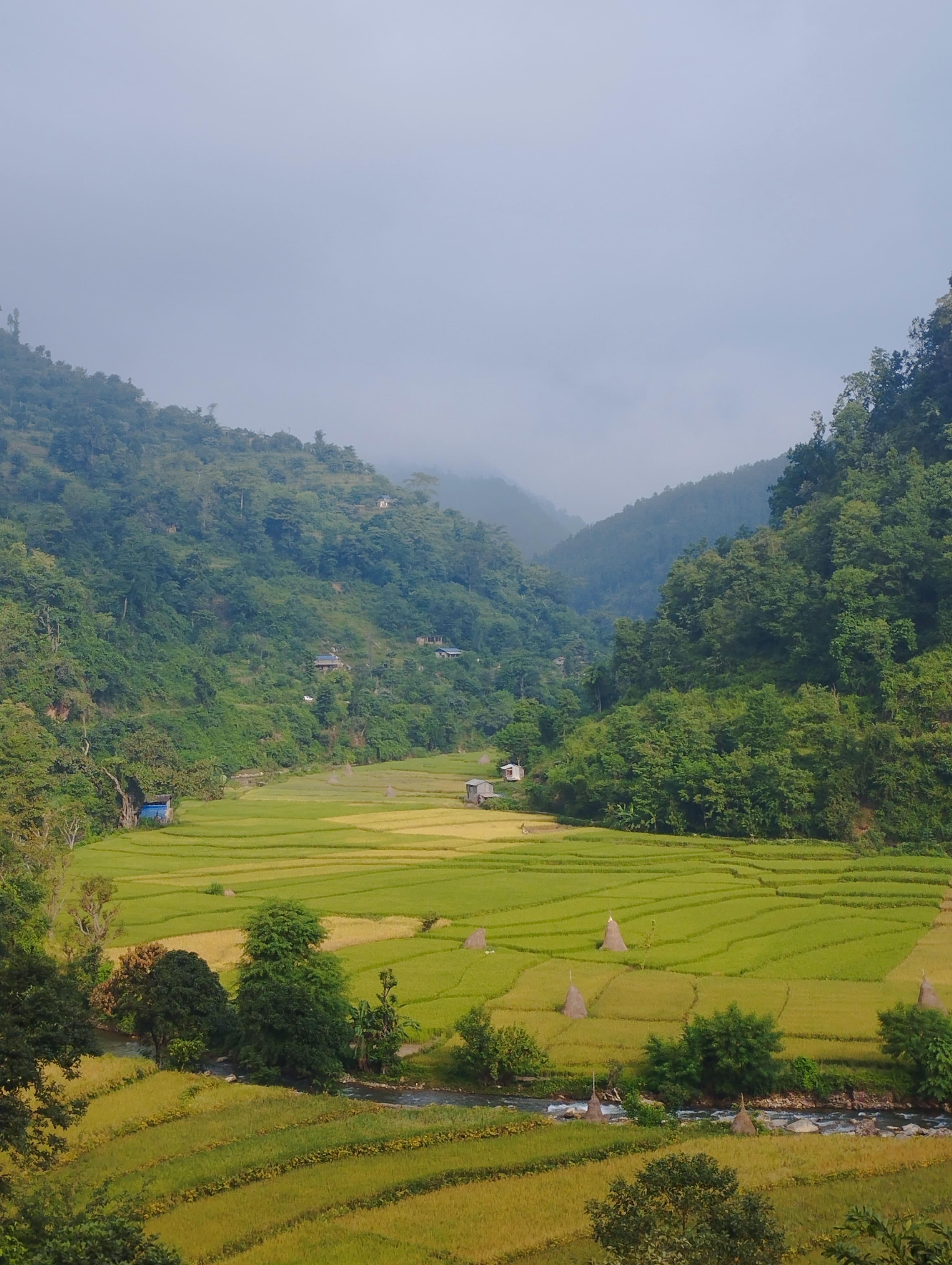As October ushers in the end of the monsoon season, farmers across Nepal are busy with one of the most critical agricultural events of the year—paddy harvesting. Paddy, the country’s most important staple crop, is now ready to be reaped, with fields in the Terai plains, mid-hills, and even some high-altitude regions turning golden.

This year, the harvesting season carries special significance. The timely monsoon rains have provided favorable conditions for the cultivation of paddy, especially in the Terai region, often referred to as the "rice bowl" of Nepal. Farmers are hopeful for a good yield, though challenges remain, particularly in more remote areas where infrastructure and access to advanced harvesting tools remain limited.
The Importance of Paddy to Nepal’s Economy
Paddy is not just an essential crop for household consumption but a critical component of Nepal’s agricultural economy. It contributes around 20% to the country’s Gross Domestic Product (GDP) and supports the livelihoods of millions of Nepali farmers. However, the success of the paddy harvest affects not only those directly involved in farming but also the broader food supply chain, influencing market prices, food security, and rural incomes.
According to the Ministry of Agriculture and Livestock Development, paddy production is projected to rise this year, with an estimated yield of around 5.5 million metric tons. This increase comes after several years of unpredictable weather patterns and COVID-19 disruptions, which had negatively impacted production.
Climate Change and Paddy Production
While this year’s paddy season seems promising, concerns over climate change are growing. Erratic rainfall, prolonged droughts, and rising temperatures have been gradually affecting Nepal's traditional farming systems. In certain areas, heavy rainfall has also caused flooding and landslides, destroying crops and making it difficult for farmers to complete their harvest on time.
To address these challenges, many farmers and agricultural organizations are exploring the adoption of climate-resilient varieties of paddy, as well as more efficient water management systems like drip irrigation. Still, there is much work to be done in disseminating these technologies to smallholder farmers, who form the backbone of Nepal’s agricultural industry.
Traditional Practices and Community Involvement
Despite technological advancements, paddy harvesting in Nepal remains deeply rooted in tradition. In rural areas, families and communities still come together to work in the fields, maintaining centuries-old practices passed down through generations. Festivals like Dashain and Tihar, celebrated during the harvest season, reflect the spiritual significance of this time of year, as farmers give thanks for a bountiful crop.
In many villages, particularly in the mid-hills, the labor-intensive process of harvesting is done manually, with sickles. Once the paddy is cut, it is threshed and dried in the sun, a method still widely used due to a lack of mechanization in these regions.
Looking Ahead: Opportunities and Challenges
While the future looks bright for this year’s paddy yield, Nepal’s agricultural sector faces long-term challenges that need to be addressed. The government has pledged to support farmers through subsidies on seeds, fertilizers, and equipment, but issues such as access to credit, market linkages, and the impact of global rice prices on local production are still pressing concerns.
With the paddy harvest now underway, all eyes are on how this critical season will unfold. If successful, it will bring relief to farmers and offer a much-needed boost to the country’s economy as it recovers from recent crises. However, the need for sustainable agricultural practices and climate resilience is more urgent than ever, as Nepal navigates the future of its agricultural sector.